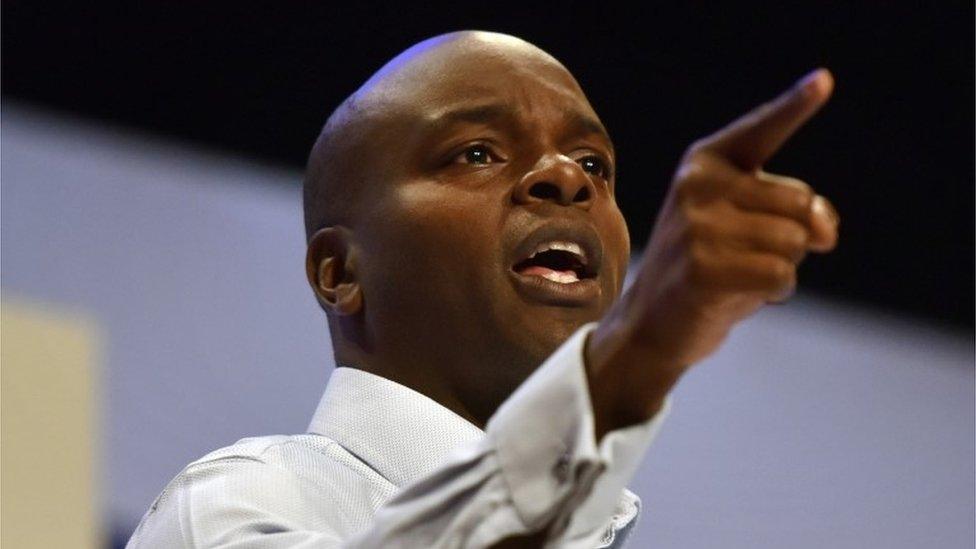Shaun Bailey reveals London Infrastructure Bank plans
- Published

Shaun Bailey is campaigning to be the second Conservative mayor of London, after Boris Johnson
The Conservative candidate for mayor of London has announced plans to set up a bank to fund infrastructure projects in the capital.
The London Infrastructure Bank would seek to raise £10bn in private funding over three years to spend on projects such as Crossrail, Shaun Bailey said.
"Seed funding" of £363.5m a year would be taken from business rates.
Sadiq Khan said it would be "incredibly damaging" to ask "businesses to pay more" towards infrastructure.

LONDON'S ELECTION: THE BASICS
What's happening: On 6 May people will vote to elect a mayor as well as 25 members of the London Assembly. Together, they make up the Greater London Authority (GLA), which governs the capital - you can register to vote here, external.
What difference does it make? The mayor has a £19bn budget and is responsible for Transport for London, the Metropolitan Police, and has a role in housing, planning and the environment. The London Assembly holds the mayor to account by examining their policies. Find out more here.
Who is standing? London's current mayor, Labour's Sadiq Khan, is seeking re-election and his main challenger is Conservative Shaun Bailey, but there are 18 others running.


Mr Bailey announced the bank as part of his 10-point "Fresh Start" plan to improve London's finances.
The infrastructure bank would be owned by the Greater London Authority and co-fund projects alongside private investors through a mix of loans and guarantees.
The public sector would "retain full ownership of the assets" while investors would take returns for their investments from the profits of the projects.
A spokesman for the mayor of London said: "The government continues to starve London of the funds we need to properly fund our public services.
"The answer to austerity can't be to hike up taxes for businesses or ask them to pay more as they recover from the crippling impact of Covid-19.
"Businesses are already helping to fund infrastructure in the capital."
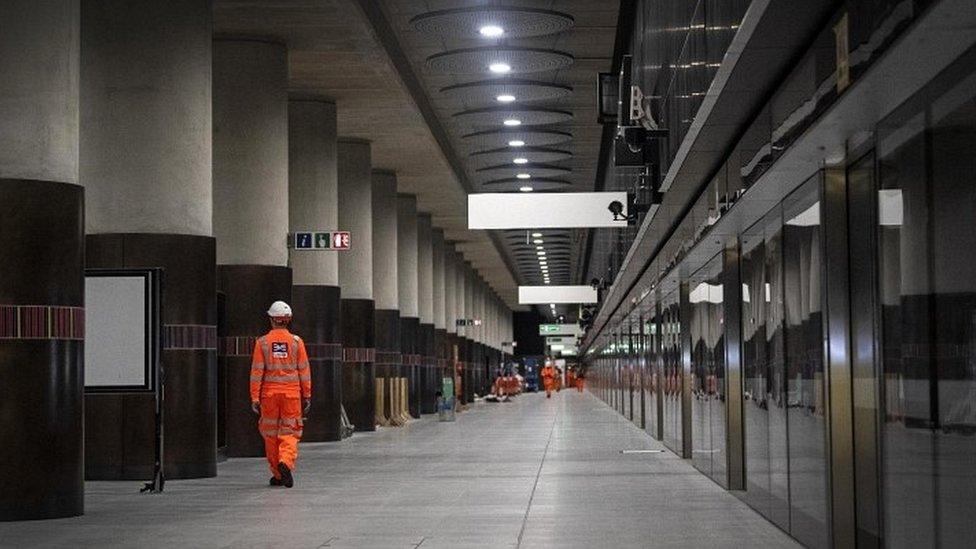
The bank would be used to fund projects such as Crossrail
The scheme would be based on the UK Infrastructure Bank announced in the November spending review and the German Kreditanstalt für Wiederaufbau.
Mr Bailey said an infrastructure bank "has been a missed opportunity by Sadiq Khan".
"The money is there, we can leverage it 10 times over," he said.
"Borrowing money is at historic lows, and investors are looking for long-term, steady investment over time.
"We have to do something bold and we have to make a change. London has been going in the wrong direction for four years."
Mr Bailey's 10-point plan also includes previously announced policies, including:
Reopening 38 police front counters and hiring 8,000 extra police officers
Building 100,000 shared ownership homes to be sold for £100,000,
Introducing corporate sponsorship to the Tube network to raise extra revenue
Scrapping the uLEZ extension and plans to charge drivers coming in to London up to £5.50 a day

Analysis by Tim Donovan, BBC London political editor
A key argument from Mr Bailey is that the cost of Mr Khan may hinder Covid recovery.
He'll stop the extension of ULEZ to the North and South Circular.
He'll cancel the congestion charge rise to £15 forced upon Mr Khan by government as part of painful TfL finance negotiations.
Reversal is a central word here.
And - following Tory candidates over the past two decades - he argues against rises to council tax.
But where then will he get the money for London's needs? His hope of raising up to £2bn over a mayoral term may surprise some.
Will he make more demands of government?
Or in dissing Mr Khan's arguments for more help, will he be open to the argument he has weakened the case for vital support and investment?
Related topics
- Published31 March 2021
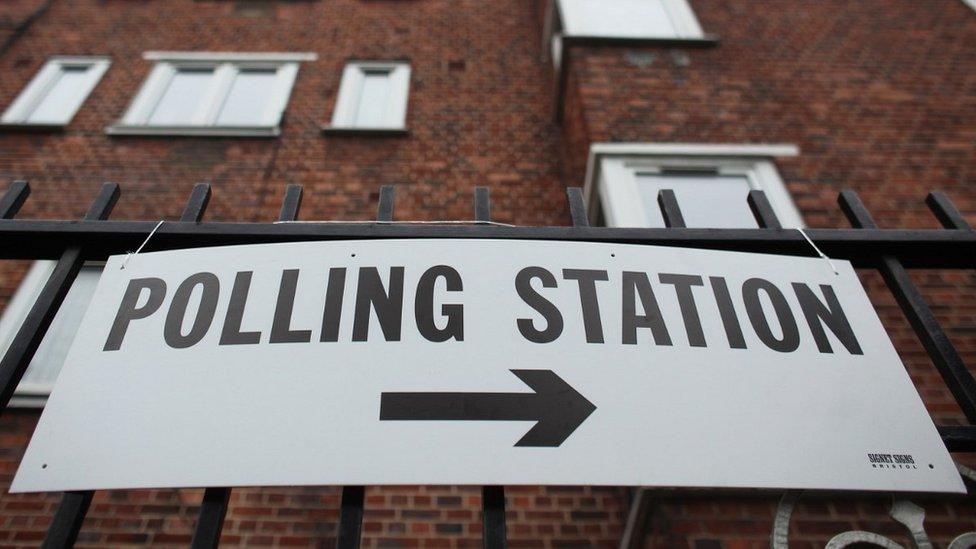
- Published25 November 2020
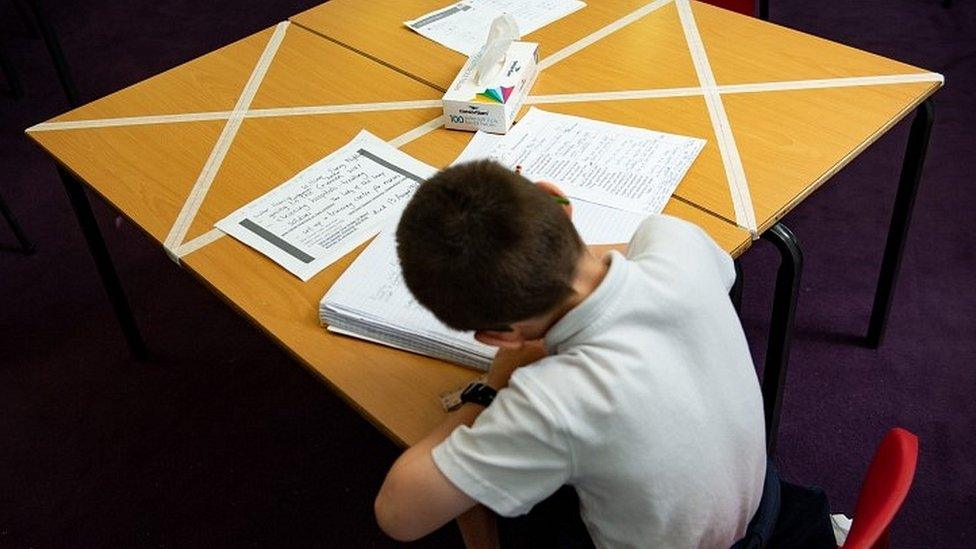
- Published2 October 2020
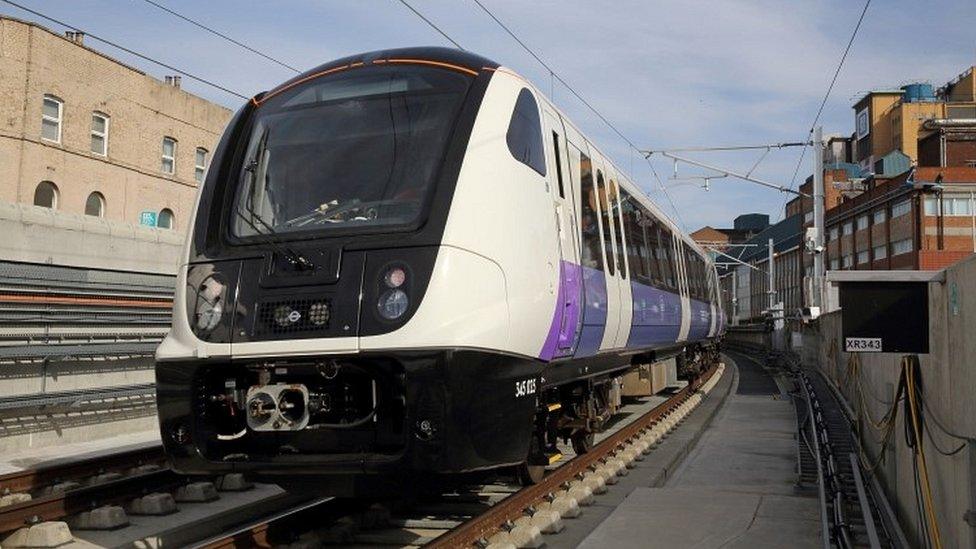
- Published26 January 2021
